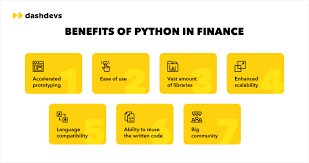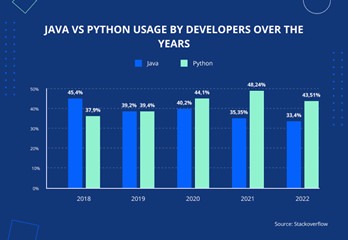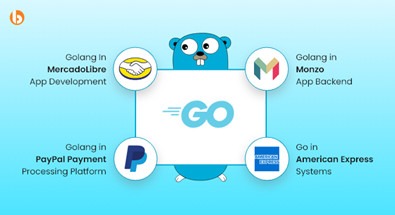Comparing Programming Languages for Fintech: Python, Java, Golang, Or Rust? -Olufemi Titilayo Samuel

High-performance and scalable software solutions are needed to handle transactions in the fintech industry. However, choosing the right programming language is critical for fintech applications. Why? Because the language you choose determines the project’s efficiency, development speed, security, compliance and financial regulations. Research has it that the global fintech market will grow at a compound annual Growth Rate of 24.8% from 2021 to 2028.
Truth be told, digital technological solutions are transforming the way Fintech industries operate in recent times. As long as these applications make financial processes easier, it is expedient for a developer to understand programming languages suitable for each project.
As a developer, if you are torn between “trial and error” and the language to use for your comfort or versatility, pay attention to this article.
Understanding Python, Java, Golang, and Rust
Python is a popular choice for fintech when comparing languages. Due to its ease of use, extensive data analysis libraries, and strong machine learning capabilities, it is one of the best in the industry. It has become popular because of its ability to ease readability, simplicity and versatility.
Python was specifically created to allow programmers to work efficiently in end-to-end software development, although it is interpreted and supports an object-oriented paradigm. It also supports dynamic typing and binding, an essential element for rapid development. Furthermore, this programming language can be used in the fintech industry for Algorithmic trading platforms (Zipline, QuantConnect), Data analytics and machine learning, and Fraud detection systems.

Source: https://images.app.goo.gl/G3iFHF77CrCn67gj8
Java is object-oriented and network-centric. The programming language is known to be fast, secure, and reliable. Java has been a popular choice among developers for over two decades. From mobile apps and enterprise software to big data applications and server-side technologies is the go-to language for developers.
Java is widely used in fintech industries because of its strong features, ability to handle high transaction volumes, reliability in enterprise applications, and a large pool of available libraries and frameworks. This makes it a trusted choice for building robust financial systems, like online banking platforms, payment gateways, and trading applications. Java is used in fintech cases like core banking systems (Oracle, FLEXCUBE, Finacle), payment processing and fraud detection, and stock exchange applications.

Source: https://images.app.goo.gl/j9YZ2wYvg2DvW163A
In fintech, Golang is considered more suitable due to its excellent performance, efficient concurrency management, strong typing, and cross-platform compatibility, which makes it ideal for developers to build scalable and high-performance financial applications like payment systems, trading platforms and risk management tools, especially when dealing with large transactions. Real-time trading platforms, high-frequency trading applications, blockchain and decentralised finance (Defi) projects are cases where programming language is applicable.

Source: https://www.bacancytechnology.com/blog/golang-for-fintech
Rust focuses on performance and safety. It tackles problems such as memory errors and difficulties with developing concurrent programs. Rust worked so well with leading companies such as Microsoft, Google, Facebook, Discord and many other programming tasks. Even StackOverflow surveys show that 87% of developers want to continue using Rust, making it a common programming language.
The rust language in fintech is used to build ultra-low latency trading systems, cryptography and blockchain security, and secure backend infrastructure.
In choosing suitable programming languages, you must consider the following:
- Performance and speed: Every second counts in our fast-paced world, where we deal with high-frequency trading and real-time analytics. This is why fintech applications need low-latency execution that has fast lightning. Imagine there is a little delay that comes between a prosperous trade and a missed opportunity. This shows that performance is a critical criterion when choosing programming languages.
- Security: Another component that cannot be overlooked is security. Financial institutions handle a series of data and demand a language that comes with robust security features.
- Efficiency: A day would not go by for fintech industries without having to process millions of transactions concurrently. So, when deciding on a programming language, your choice should be based on the efficiency capacity of what the application can handle. It could be through asynchronous processing, effective thread management, or modern concurrency paradigms to ensure your application grows seamlessly for long-term success.
- Regulatory Compliance: Fintech focuses on a maze of financial regulations like PCI-DSS, GDPR, and SEC standards. The chosen language should facilitate regulatory compliance by ensuring its features align with the detailed logging, auditing and secure data handling. This helps to simplify the daunting task of meeting stringent industry standards.
Undoubtedly, each language has its unique strengths and characteristics, which shape how each software is built. While Python is powerful, innovative ideas like Rust, Golang, and Java are emerging with their robust capabilities.
Comparative Analysis Table
| Criteria | Python | Java | Golang | Rust |
| Performance | Low | Medium | High | Very High |
| Security | Medium | High | High | Very High |
| Scalability | Medium | High | Very High | High |
| Ease of use | Very High | Medium | High | Low |
| Ecosystem | Very High | High | Medium | Medium |
| Use in Banking | High | Very High | Medium | Low |
| Use in Trading | Medium | High | High | Very High |
| Regulatory Compliance | High | Very High | High | Very High |
Which Programming Language is Best
Python, Java, Golang, and Rust are common programming languages with unique strengths, weaknesses, and purposes. Each language is suitable for specific scenarios. So, knowing the difference as a developer will help you choose the right tool suited for a particular project. In other words, choose Python if you need rapid development and AI-driven analytics. If you need an enterprise-grade banking application, choose Java. For scalable, high-performance fintech solutions, choose Golang. If you want tight security and a high trading system, choose Rust.
Overall, your choice should depend on the specific needs of the fintech industry you belong to, balancing speed, security and ease of development. The thoughtful selection of programming language in fintech applications depends on your development abilities as a developer and the objectives of the financial business. You won’t be confused about your options if you stick to programming languages that work best for a specific project.
_______________________________
About the Author:

Olufemi Titlayo Samuel is a seasoned software engineer specializing in building and optimizing financial technology applications, value-added services, and mobility tech products. His expertise extends to payment integrations, USSD solutions, educational platforms, digital services, and system integration.
With a strong technical foundation in Java, Spring Boot, AWS, Kubernetes, MySQL, MongoDB, DynamoDB, PostgreSQL, and MSSQL, he excels at developing scalable and efficient digital solutions.
When he’s not coding, Olufemi enjoys sharing insights on cutting-edge software development practices and contributing to the tech community projects.







